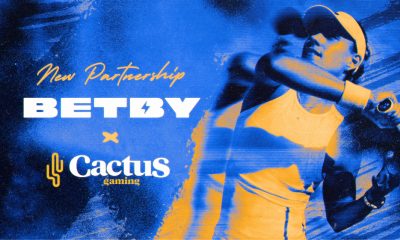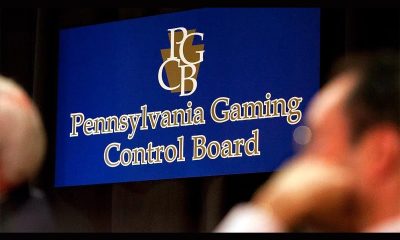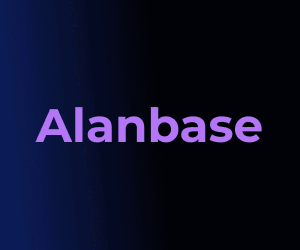Compliance Updates
PGCB Approves License for Nittany Mall Casino

The Pennsylvania Gaming Control Board (PGCB) on Wednesday unanimously approved a license for the proposed mini-casino at the Nittany Mall, but a potential appeal and a parallel lawsuit by a competing company mean the facility is unlikely to move forward any time soon.
SC Gaming OpCo, owned by investor and former Penn State trustee Ira Lubert, was awarded the state’s fifth category 4 casino license about two and half years after Lubert won an auction to apply with a $10 million bid.
The $127 million casino project is planned for the 94,000-square-foot former Macy’s property at the College Township mall.
While the board approved the license, it cannot be issued until any appeals are resolved, and a competing casino company is likely to contest the decision.
Stadium Casino, which was the losing bidder at the 2020 auction, has argued that Lubert subsequently partnered with other entities and individuals who may have ownership interests and who were not eligible to bid because they had no pre-existing interests in Pennsylvania casinos. State law for Category 4 casinos requires bidders to have ownership in existing casinos in Pennsylvania, and Lubert was eligible because of his ownership interest in Rivers Casino Pittsburgh.
SC Gaming has partnered with Bally’s, which does not have any Pennsylvania casinos, to develop the project. The board on Wednesday also approved a casino management license for Bally’s.
Baltimore-based Stadium, which operates the Live! casinos in Philadelphia and Pittsburgh, contended that the PGCB did not even have the statutory authority to consider the license application because of the ownership questions.
Stadium was granted 15 minutes to speak at Wednesday’s hearing but was denied discovery and not permitted to question witnesses. Attorney Mark Aronchick called the limitations “an abuse of discretion” by the board and said that because Stadium was the only party involved questioning the authority to consider the application, an adversarial hearing should have been conducted.
“You have tied our hands. You are not permitting us to do it in the proper way and that is not right,” Aronchick said.
PGCB’s chief enforcement counsel, Cyrus Pitre, said the board’s statutory authority is clear.
“The authority is in the [Pennsylvania gaming] act. The act is replete with the authority of this board, so as far as I’m concerned that argument goes out the window. Everything submitted by Mr. Lubert as an applicant is similar to just about every other application that we’ve received for a category 1, 2, 3, 4 license. His application is no different from Stadium’s application or any other applicant that came before us in general. There is nothing unsuitable about the application. There is nothing unsuitable about the integrity of the source of the funds, the source of the bid. All of that has been investigated and is of a suitable nature,” Cyrus Pitre said.
Lubert’s attorneys stated that he is the sole owner of SC Gaming OpCo, that any transfer of ownership would require PGCB approval and that state law does not prohibit having other financial backers.
Office of Enforcement Counsel attorney Ashley Gabrielle said PGCB’s Bureau of Investigations and Enforcement and its Financial Investigations Unit conducted “exhaustive and detailed” background investigations and found no issues.
“…OEC is of the opinion that SC Gaming OpCo is eligible and suitable for the issuance of a category 4 slot machine license at this time. As such, OEC is of the opinion that the board has the authority and duty to consider this application as it does any other application that is ripe for consideration,” Gabrielle said.
An appeal of the board’s decision would go to the Pennsylvania Supreme Court. Stadium also has a lawsuit against Lubert and the PGCB pending in Commonwealth Court, with no clear timeline.
Compliance Updates
Elys BMG Group Announces Approval for The Ugly Mug Sportsbook in Washington, DC.

Elys BMG Group announced that The Ugly Mug in Washington D.C. has been granted provisional approval from the District of Columbia Office of Lottery and Gaming Regulation and Oversight Division (DCOLG) to open its sportsbook at 723 8th St. SE. As the fourth privately owned sportsbook venue in the District powered by Elys’ innovative Gameboard betting technology, The Ugly Mug stands as a testament to Elys’ commitment to bringing cutting-edge solutions to local businesses and sports enthusiasts.
The grand opening for The Ugly Mug sportsbook is anticipated to occur during the week of April 27th. Elys will unveil the grand opening festivities, promotions, and events as the date draws closer.
With easy access to sports wagering and a classic American menu in a relaxed setting, The Ugly Mug sportsbook is set to become a premier destination in the Navy Yard region of Washington D.C. and is another step forward for Elys becoming the leading betting technology provider for neighborhood sportsbooks in the US.
Compliance Updates
eCOGRA Authorized to Offer Certification Services in Brazil

eCOGRA, the Internationally renowned Independent Testing Laboratory, has been officially authorized by the Secretaria De Prêmios e Apostas (SPA) to operate as a certifying entity for betting systems, live gaming studios, and online games in Brazil. This announcement marks a significant milestone as eCOGRA continues to extend its international offering of iGaming testing, inspection, and certification (TIC) services in regulated markets across the globe.
The announcement comes two months to the day after eCOGRA received approval to operate as a Certification Laboratory in Peru. The organization now operates in 39 online gambling jurisdictions, including Buenos Aires City and Province, Peru, Mendoza, Colombia, and Brazil in South America.
Since its establishment in 2003, eCOGRA has been at the forefront of online gambling certification, providing assurance on fairness and safety to players while offering the highest standards in TIC services to industry operators and software providers seeking to comply with regulatory requirements. The approval to operate in Brazil reflects both the trust eCOGRA has built in the international iGaming community and the quality of its certification services.
Bradley Khoury, Chief Technical Officer of eCOGRA, said: “We are thrilled to bring over two decades of expertise in online gambling certification to the vibrant market of Brazil. This approval from the Secretaria De Prêmios e Apostas (SPA) of the Brazilian Ministry of Finance is not only a testament to our unwavering commitment to the highest standards of competence and quality but also marks an exciting new chapter for eCOGRA. We look forward to working closely with Brazilian operators and interested parties to ensure a safe and fair gaming environment for all players.”
The new Brazilian regulatory framework aims to effectively safeguard player interests and enhance the integrity of online gambling operations within the country.
“Brazil offers a dynamic and rapidly growing market, and we are excited to contribute to its development. Our goal is to ensure that Brazilian players have access to certified iGaming experiences, akin to what has successfully been implemented in other highly regulated jurisdictions,” Khoury added.
Operators and software developers offering in the federal Brazilian jurisdiction seeking to comply with the laws and regulations by undergoing testing, inspection, and certification can now turn to eCOGRA for their renowned services, assured of their commitment to quality, impartiality, and fairness.
Compliance Updates
IGT and Acres to Resolve All Pending Litigation

International Game Technology (IGT) and Acres 4.0, Acres Manufacturing Company, and John Acres (Acres) announced that effective April 12, 2024, they have reached an agreement to resolve all legal disputes between the two companies. Terms of the settlement have not been announced.
The resolution was reached in the US District Court of Nevada, directed to US patents that pertain to facilitating use of a financial transaction device in a cashless wagering system in a gaming system, and Nevada State Court directed to a breach of contract claims.
“IGT is pleased to reach a mutual agreement with Acres that resolves all disputes between us. This allows us to dedicate our collective resources where they are better served, driving continued innovation in the exciting and evolving cashless gaming space,” said Nick Khin, IGT COO Gaming.
“We are thrilled to put this matter behind us and work cooperatively with IGT to build exciting new gambling experiences that can increase both player enjoyment and casino profits,” John Acres, CEO of Acres, said.
-

 Latest News5 days ago
Latest News5 days agoLight & Wonder Taps Trustly to Power Cashless Payments at Casinos
-

 Latest News2 days ago
Latest News2 days agoAEG and Yaamava’ Resort & Casino at San Manuel Announce 16th Year in Partnership, Shaping the Future of Sports and Live Entertainment Across Southern California
-

 Latest News5 days ago
Latest News5 days agoKingMidas Games Unveils Cutting-Edge Range of Multiplayer Games
-

 Canada2 days ago
Canada2 days agoGiG increases Ontario market presence, powering the launch of Casino Time
-

 Latin America2 days ago
Latin America2 days agoBetby Forges Strategic Partnership With Latam Powerhouse Cactus Gaming
-

 Gambling in the USA2 days ago
Gambling in the USA2 days agoPlay’n GO announces expansion of BetMGM partnership with Pennsylvania launch
-

 Latin America3 days ago
Latin America3 days agoCGS Events Revolutionizes the Chilean Gaming Scene with the Launch of CGS Santiago in its Fourth Edition
-

 Latest News5 days ago
Latest News5 days ago7JP Bolsters Team with Strategic New Hires Ahead of Brazilian Market Expansion


















